A ‘huge need’ for adult ESL in Columbus: how one program addresses the challenge
In an upstairs classroom at Indian Run United Methodist Church in Dublin, volunteer English instructor Tara Leimeister led a group of new American adults — including immigrants and refugees from Syria, Venezuela and Ukraine — in comparing celebrities to one another.
“Shakira has long blonde hair, but Zhou Qi (formerly of the Houston Rockets) has short black hair,” said one student, gazing at a set of photographs on her desk on a recent weeknight.
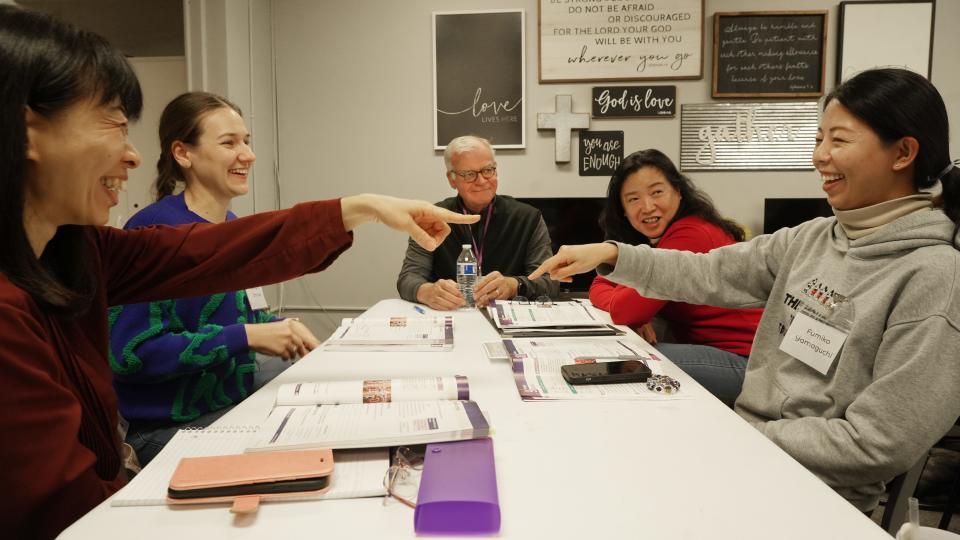
“Nice use of a comparative clause, I like that,” Leimeister said encouragingly.
In the church’s auditorium downstairs, a fashion show was going on.
Serenaded by Stevie Wonder’s “Superstition,” scores of children — the offspring and grandchildren of the adults upstairs — sashayed down a makeshift catwalk in their Halloween costumes: as Batman, an astronaut, a tiger, and a rabbit. Teenage volunteers cheered them on.
The children and adults were participating in a unique, three-generation English as a Second Language program run by Festa, a local nonprofit group. Running from October through April each year, the program serves entire families — from infants to grandparents — by providing ESL for the adults while the children (whose English skills are often more advanced) play games, get homework help and are fed dinner. There is also a "baby room" where infants are cared for.
By providing child care during the weeknight classes, Festa aims to eliminate a barrier that prevents many parents from accessing ESL classes: time.
“We have the only three-generation family English program that we can find anywhere — not just in Columbus or Ohio, but I'm talking to people even at a national level and can't find anyone else doing this,” said Kim Emch, Festa’s founder and executive director.
“Every person in the family gets the education they need to get out of poverty, not just live better in it — to go from surviving to thriving,” she added.
Currently, 765 people from over 50 countries (including children and adults) attend the free program twice per week at one of two locations — at the church at 6305 Brand Road in Dublin, or at the Upper Arlington Lutheran Church at 3500 Mill Run Dr. in Hilliard.
The waitlist currently has more than 300 people, according to Emch, who hopes to eventually expand to 20 locations.
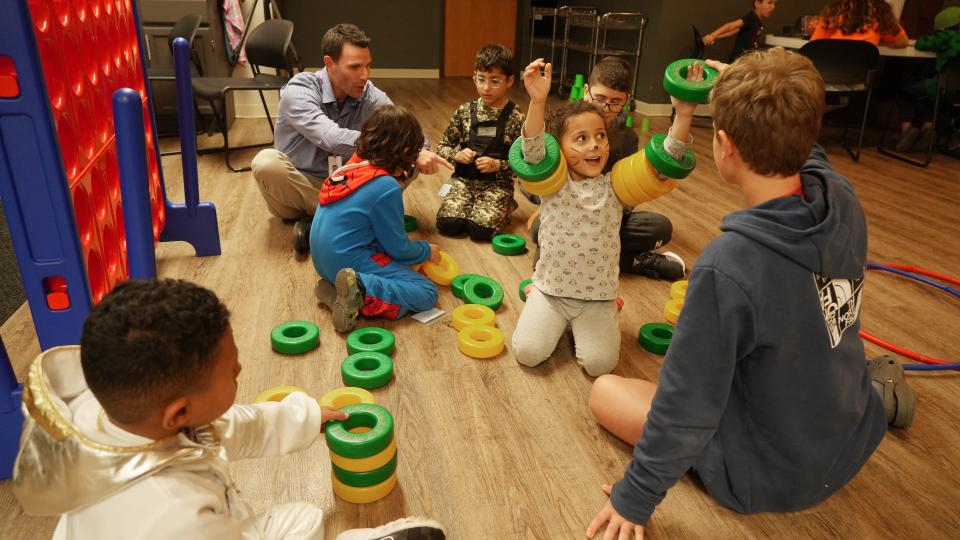
A great need
Experts say Festa’s long waitlist reflects a lack of sufficient adult ESL resources in Greater Columbus, where the population has become increasingly international in recent decades.
“We have a pretty continuous stream of immigrants coming in, or people relocating to the area because of work, for whom English is not their main language,” Sara Levitt, a member of the Ohio Teachers to Speakers of Other Languages Board, told The Dispatch.
According to the Census Bureau, over 185,000 foreign-born people reside in the Columbus metropolitan area and more than 77,000 people — many of them adults — speak English less than “very well.”
But organizations in Greater Columbus that offer ESL classes enroll only around 5,300 adults, according to a May 2022 survey by Festa.
Several dozen organizations besides Festa provide adult ESL classes, with the largest being the Columbus Literacy Council, Columbus City Schools Adult & Community Education, area community colleges, various churches and refugee resettlement agencies.
In other parts of Ohio, the need is even more acute. A 2018 study by multiple philanthropic organizations found that the majority of Ohio counties have no adult ESL resources.
Despite immigrant groups like Latinos contributing a disproportionate share to Ohio’s economic growth, Levitt said that people who lack English skills are less likely to advance in their careers and more likely to be taken advantage of in work or housing.
“There are inadequate courses available. … There's a huge need (for adult ESL),” she added. “And especially if you’re a recent arrival in the country, you're working at least one, if not two jobs, it's very difficult to find the time to work (ESL classes) in.”
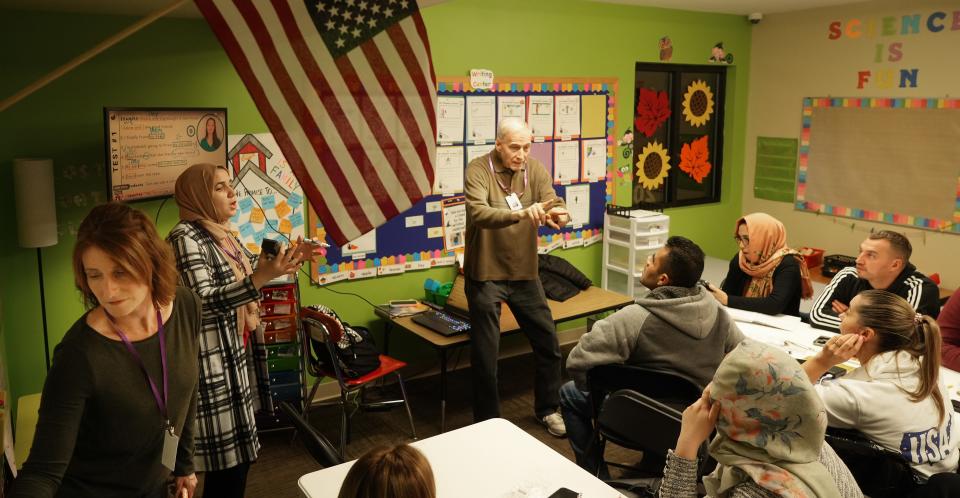
Festa’s unique program
As children tucked into a meal of macaroni and cheese and mandarin oranges one recent day, parents and grandparents took a coffee break from their ESL classes at Festa’s Dublin location.
Zeinab Omar Hassan, 33, a homemaker and mother of five, said she came to the U.S. seven years ago after fleeing Syria’s civil war. At that time, she had “zero” English and was afraid to go out of the house because she felt insecure about communication.
But since enrolling in Festa’s course four years ago, her English has improved dramatically.
“I can now speak with anyone — just a little bit of English, but I'm OK. The teachers say, ’It's OK, not everyone speaks English here, (but) everyone must try,” she said, choosing her words carefully.
She added that the program had been a boon for her kids too. “(The teachers) help with homework — because me, I can't help with homework.”
Emch said that when she founded Festa in 2007, it began with a summer lunch camp that still provides meals each July and August to needy Hilliard City School District students. The family ESL program grew out of that in 2009, as parents began asking for more help with homework and English.
Abraham Mendoza and Emely Oropeza, a young couple from Venezuela who came to the U.S. over a year ago, said they had enrolled in Festa’s program three weeks ago and were learning a lot already. Oropeza said language barriers made life difficult — from daily interactions with customers (she’s a Lyft driver) to high-stakes medical conversations with her doctor.
Festa has 11 full-time staff members and hires dozens of part-time, seasonal workers as well, according to Emch. But the vast majority of instructors are volunteers.
Instructor Angela Staten, who has been with the program since 2012, thanked the students during a break. “It just touches my heart to see you guys working so hard. … As an American, I need to never speak again of anything that is difficult. Because some things that you all have been through is incredible.”
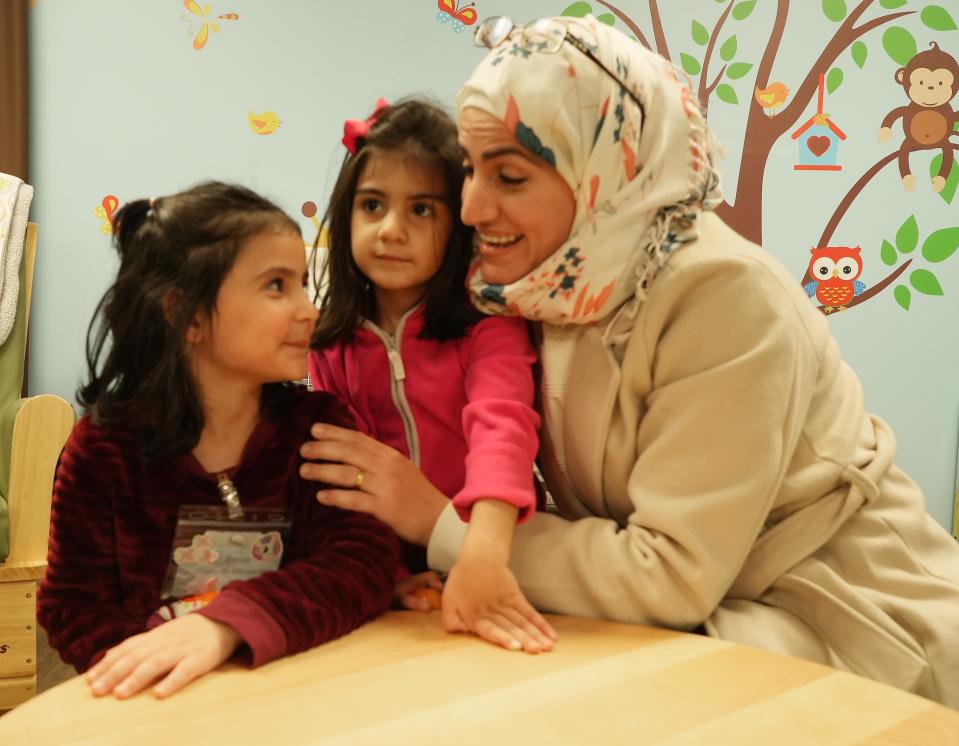
Emch said she is driven to do her work by the great need and by her own Lutheran faith.
“I feel called by God to love and serve all of my neighbors … across lines of difference — racial, ethnic, religious, socioeconomic and cultural. No strings attached,” she said.
Today, her nonprofit group has an annual budget of around $1.2 million, which includes time donated by hundreds of volunteers.
She hopes to raise enough through grants and donations to enable the program to expand to 20 locations.
“We’ve replicated the Hilliard program here (in Dublin) already — so we know our model works,” she said.
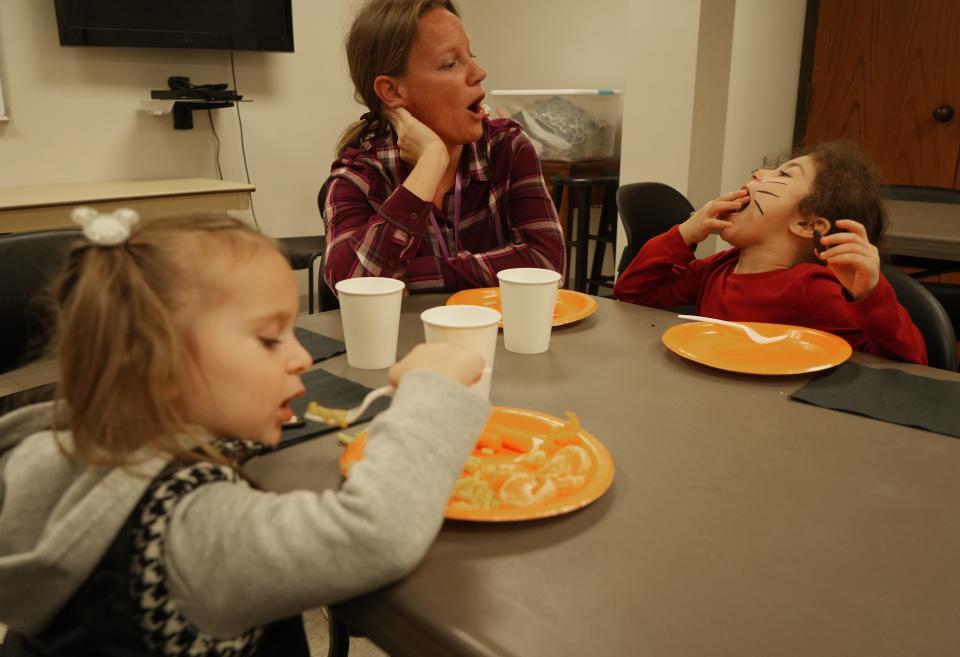
Peter Gill covers immigration, New American communities and religion for the Dispatch in partnership with Report for America. You can support work like his with a tax-deductible donation to Report for America at:bit.ly/3fNsGaZ.
pgill@dispatch.com
This article originally appeared on The Columbus Dispatch: A ‘huge need’ for adult ESL and one program addressing the challenge

